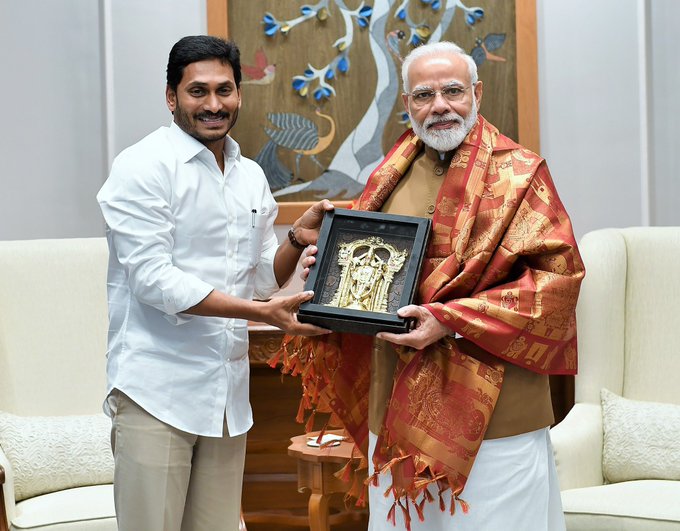Jagan unlikely to get Centre's nod to dissolve Legislative Council
By Jinka Nagaraju
Hyderabad: Even though AP’s Jagan Mohan Reddy’s government looks hell-bent on the abolition of the Legislative Council, on any pretext, the chances of it being passed into law at the Centre are bleak.
Following the Chairman's decision to refer the two bills related to the implementation of Capital Centralization to the select committee, Chief Minister Jagan has openly talked about the abolition of the Legislative Council.
A parliamentary Standing Committee, way back in December 2013, recommended evolving a national policy for creation and abolition of Upper Houses in state legislatures. It found the second chambers in the states had fallen victim to political tussles between the ruling and the opposition parties as in AP and Tamil Nadu.
The committee which was set up in the wake of resolutions from Rajasthan and Assam Assemblies to create the second chamber dealt with the problem in the light of experience from Andhra Pradesh and Tamil Nadu where political exigencies led the states to abolish or revive the Councils.
So, the Parliamentary Standing Committee on Law and Personnel strongly felt the need to have a national policy for the creation or abolition of Legislative Council in the states so that it does not depend on the “whims and fancies” of the chief ministers of the day.
The Rajasthan Assembly passed the resolution in April 2012 while Assam did it in 2013. Both bills came up for Parliament’s consideration. The two bills were referred to the Standing Committee. The committee was set up during the UPA regime and when the Rajasthan and Assam governments were under the control of the Congress.
The committee did clear the proposals but with a caveat that a national policy on having an Upper House in the state legislatures need to be framed by the union government so that no subsequent government could abolish it.
The Committee clearly mentioned that “the status of the second chamber (of the state legislature) cannot be of temporary nature depending on the mood of the government of the day”.
Finally, the Upper Houses in Rajashtan and Assam could not be revived as the situation across India changed in 2014. The government of Vasundhara Raje did not pursue the Congress proposal nor did the Sarbananda Sonowal government in Assam.
This has forced the Union government to put on hold the resolution it received from Odisha as well.
To arrive at the conclusion, the Parliamentary panel is said to have relied heavily on the experience of Andhra Pradesh and Tamil Nadu. TDP chief minister NT Ramarao abolished the council in 1985 and it was revived in 2007 when Congress’ YS Rajasekhar Reddy was the chief minister.
In Tamil Nadu, the issue has been hanging fire for about three decades. The AIADMK government favoured the abolition of the Council while The DMK wanted to revive it. In 1986, the MG Ramachandran’s AIADMK government got a resolution passed in the Assembly for the abolition of the second chamber. Later when Karunanidhi’s DMK came to power it wanted to revive it. In 2010, the DMK-controlled Assembly passed a resolution to restore the Legislative Council and the parliament also enacted Tamil Nadu Legislative Council Act, 2010. But before the Upper House was constituted, AIADMK stormed to power and the Assembly passed a resolution to revoke the one passed in 2010.
To avoid this vindictive attitude governing the survival of the Upper House, the Parliamentary panel favoured a national policy for the creation or abolition of the second chamber in the states.
Now, the Odisha Assembly also passed a resolution in 2018, though it was opposed by the Congress and BJP. The bill is pending with the Centre. So the AP government's resolution is unlikely to get preferential treatment over other states.
As per Article 169(1), it is the Parliament that is mandated to create or abolish the Council in the states. That Article states: Notwithstanding anything in Article 168, Parliament may by law provide for the abolition of the Legislative Council of a state having such a council, or for the creation of such council in a state having no such council if the Legislative Assembly of the State passes a resolution to the effect by a majority of the total membership of the Assembly and by a majority of not less than two-thirds of the members of the Assembly present and Voting.